Reader Revisited: Reading with Looked-After Children by Grace Frame
We're taking a trip down memory lane and revisiting articles from The Reader Magazine. This article first appeared in issue 76 and was written by Grace Frame.
The Reading Heroes project continues and has since expanded- more on that here.
Becca has been reading in person with two seven-year-old brothers. She reads separately with each boy. Helen, their foster carer, says that the older brother was diagnosed with dyslexia last year, and that Becca’s visits have made a difference to the boy’s confidence.
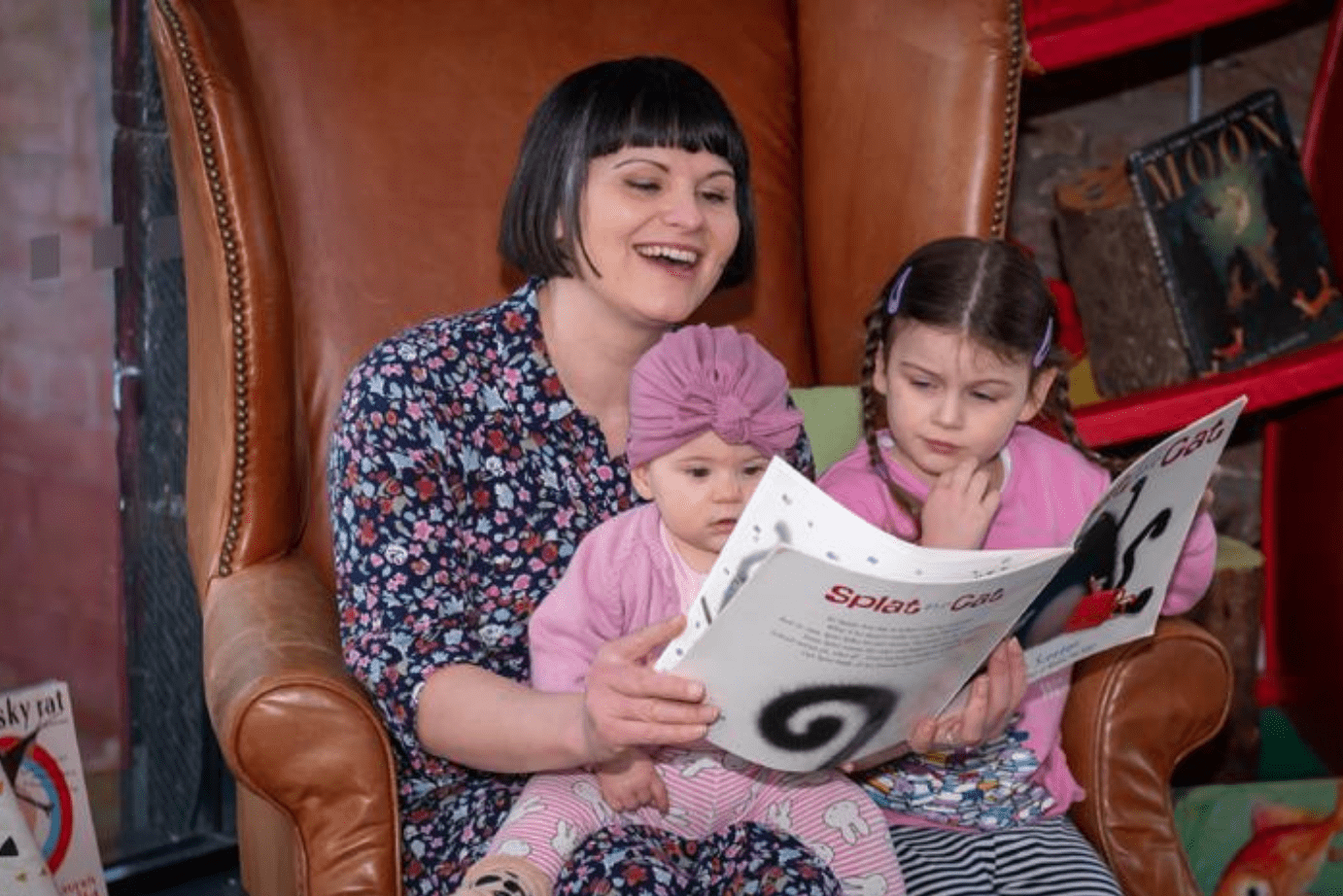
Helen: He wouldn’t read because he felt as if he was getting it wrong. In the past, if I’d say, ‘Go and pick a book,’ he’d pick a very ‘young’ book where he knew the words and could tell what it said by the pictures. Now, he’s picking ‘older’ books – not necessarily up to his age level, but more difficult to read – he’s wanting to try to read them. He’s suddenly interested: he’s discovered books. He takes his interests into school and he talks about different books he’s read. He’s wanting now to share with other people, which he didn’t at first, he really didn’t. I’ve got a little girl of two and he’s started reading bits to her – he used to totally shy away from that. So it’s taken his fear out of reading.
Becca: He wants to sit right next to me now. That started after a few months of reading together. He moved closer and closer so now we hold the book between us.
Helen: He is quiet. He takes his time to get to know you and only when he’s comfortable will he then come a bit closer. It is now 15 years since The Reader first started providing dedicated reading opportunities for looked-after children.
The Reading Heroes project focuses on matching volunteers, like Becca, with looked-after children with an offer of reading one-to-one for 30 minutes to an hour a week for up to six months. Between 2015 and 2021, the work was funded by Children in Need. In the current Reading Heroes project, volunteers either visit the child’s home, or read with them over Zoom, usually once the child has returned home from school. Reading Heroes focuses on promoting reading for pleasure; encouraging children to see reading as a fun, beneficial and life-enhancing activity. Volunteer training begins with providing the adults with an opportunity to experience Shared Reading for themselves and continues with sessions that look at how to use your voice in Shared Reading, and what to look for when sharing books with a child. In practice the sessions are shaped around the child, with The Reader providing support in finding books that might engage the child and pick up on their own individual interests.
Feedback from the project has been overwhelmingly positive. One carer commented: ‘They wake up every Thursday morning and say, “The Reader is coming today: great!” Another carer said that the time spent with a Reading Heroes volunteer ‘has played a huge part in how much the children have adapted to the changes that have been made in their lives both physically but more so emotionally. It has helped to give them the right to be carefree; a right that every child deserves.’ I spoke to several volunteers and carers currently participating in the project to find out how particular children have benefited. Becca describes how the younger brother she reads with is a more competent reader, but was initially more reluctant to engage in the sessions.
Becca: He’d rather be off doing something else. But once you can engage him, he does get into it. He really liked a lot of the Dr Seuss rhyming books with unusual words, like The Sneetches or Green
Eggs and Ham. Through those books we discovered actually he loves books with rhymes in. He’ll pick out words that rhyme, and say something like: “Where” and “there” – they match!’
Helen: To be honest, we would never have discovered that without Becca coming, because he doesn’t read those sorts of books in school. He has set reading books, and we tend to buy factual books, like if he’s doing dinosaurs at school, something like that. Whereas we’ve now discovered that he loves poems, and rhyming stories and books. If he’s in his bedroom, he’s always reading those books – he loves them. Becca works in housing for the council, and comments that her job isn’t connected in any way to reading or to children. Her own son, with whom she enjoyed reading, is now a teenager.
Becca: With Reading Heroes, I’m an adult but I’m not in a position of authority. I just go in and say, ‘I’m your reading friend. I’m Becca.’ After we’ve done some reading I might say, ‘Shall we do a little game?’ Then it’s just a fun half-hour session. Reading is the bulk of it, but the boys don’t think, ‘Oh, she’s coming to just read and if I don’t want to do reading then that’s it, she’s going to go away.’ There’s always something else.
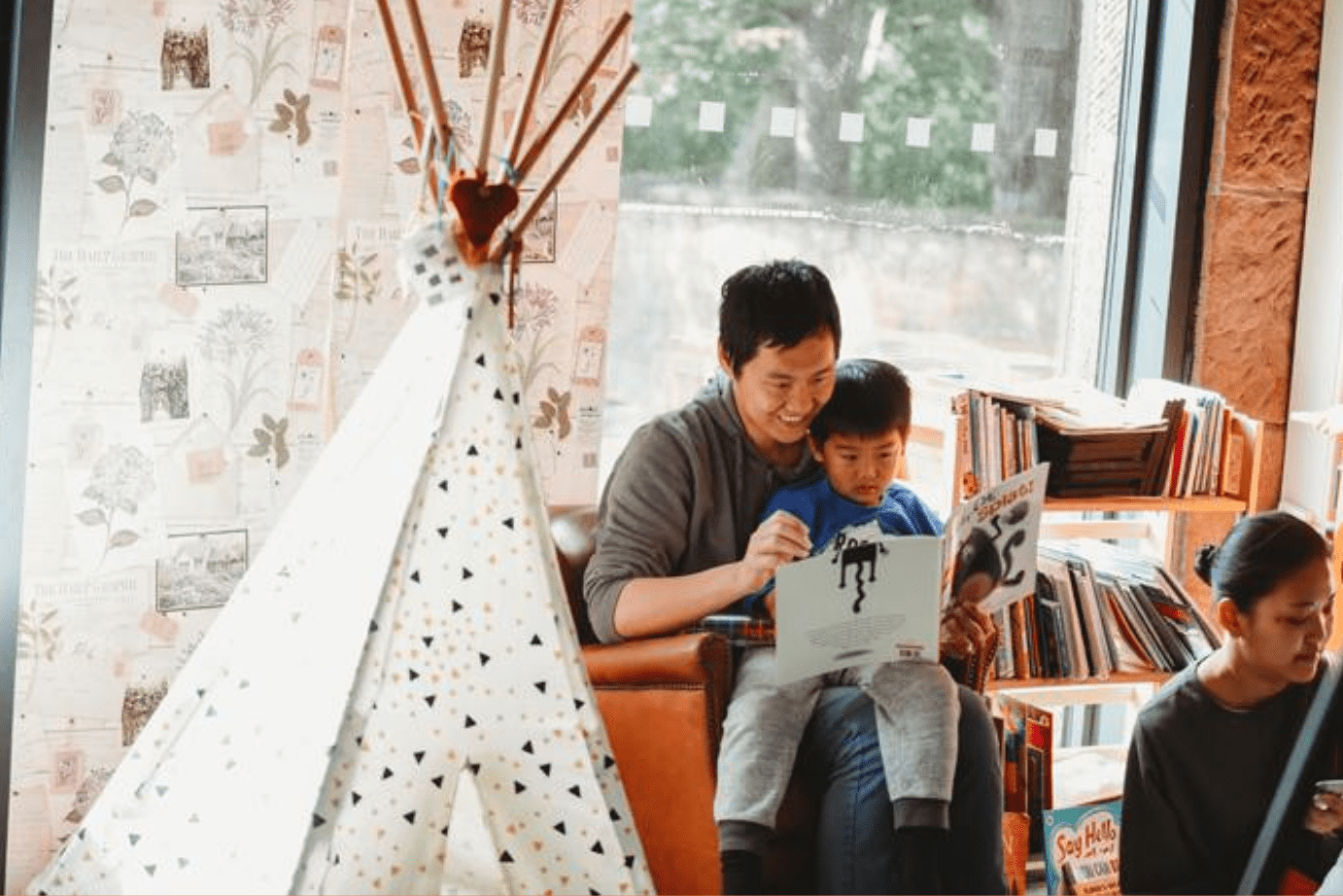
Helen: Being two boys, they’re very much in competition with each other for my attention. So they absolutely love someone else coming in and spending that time with them, and reading with them. Prior to this, the boys struggled to sit and listen, especially if there was someone new coming into the house. They would be very, very excitable, running around, hiding, and stuff like that. With Becca, they settle down, they speak, they listen and they enjoy it. Also the reading is very calming. The younger boy sometimes gets very frustrated, and Becca’s very good at calming him down
Becca: Sometimes if we get to what they class as a good bit in a story they’ll say, ‘Can we go and show Helen?’ and they’ll jump off the sofa and go with the book and say, ‘Helen, look at what Becca’s just shown us.’ And then they come back again, and we carry on reading.
Abby reads over Zoom with a girl in foster care who has recently turned seven. The foster carers have now been granted permanent care of the girl and her brother.
Abby: When I started reading with her, she was very recently in foster care and she was very confused and upset. And she couldn’t read at all. She’s absolutely blossomed. I’m not putting that down to me, that’s down to being in a secure environment. But within a couple of months she started trying to read short paragraphs, and she’s come along in leaps and bounds. Now she reads fairly fluently.
To start with she said she wanted to read stories about ballerinas, unicorns and gymnastics. She’s black, and Hope (the Reading Heroes Co-ordinator at The Reader) managed to find a true-life story written by a refugee from Sierra Leone who became a ballerina – Ballerina Dreams by Michaela and Elaine DePrince. We read that over and over. She loved it. We’ve read other books that are related to ballet like Dogs Don’t Do Ballet by Anna Kemp. And we’ve also read a few unicorn books and other age-appropriate things in a variety of different subjects, like Tropical Terry by Jarvis.
'If I had to describe Reading Heroes to my friends then I would say that you make a new friend who reads with you every week and you have lots of fun… After me and Anna finished reading on a Wednesday I would go and tell my Nan all about the story we read… I really miss Anna but I have lots of books which make me remember her so that makes me happy.’ ‘Jenny’, 7
Alys reads over Zoom with an 11-year-old girl from Wales whose most recent foster care placement is in England. As a Welsh speaker herself, Alys is able to conduct the sessions in Welsh to support this aspect of the girl’s identity.
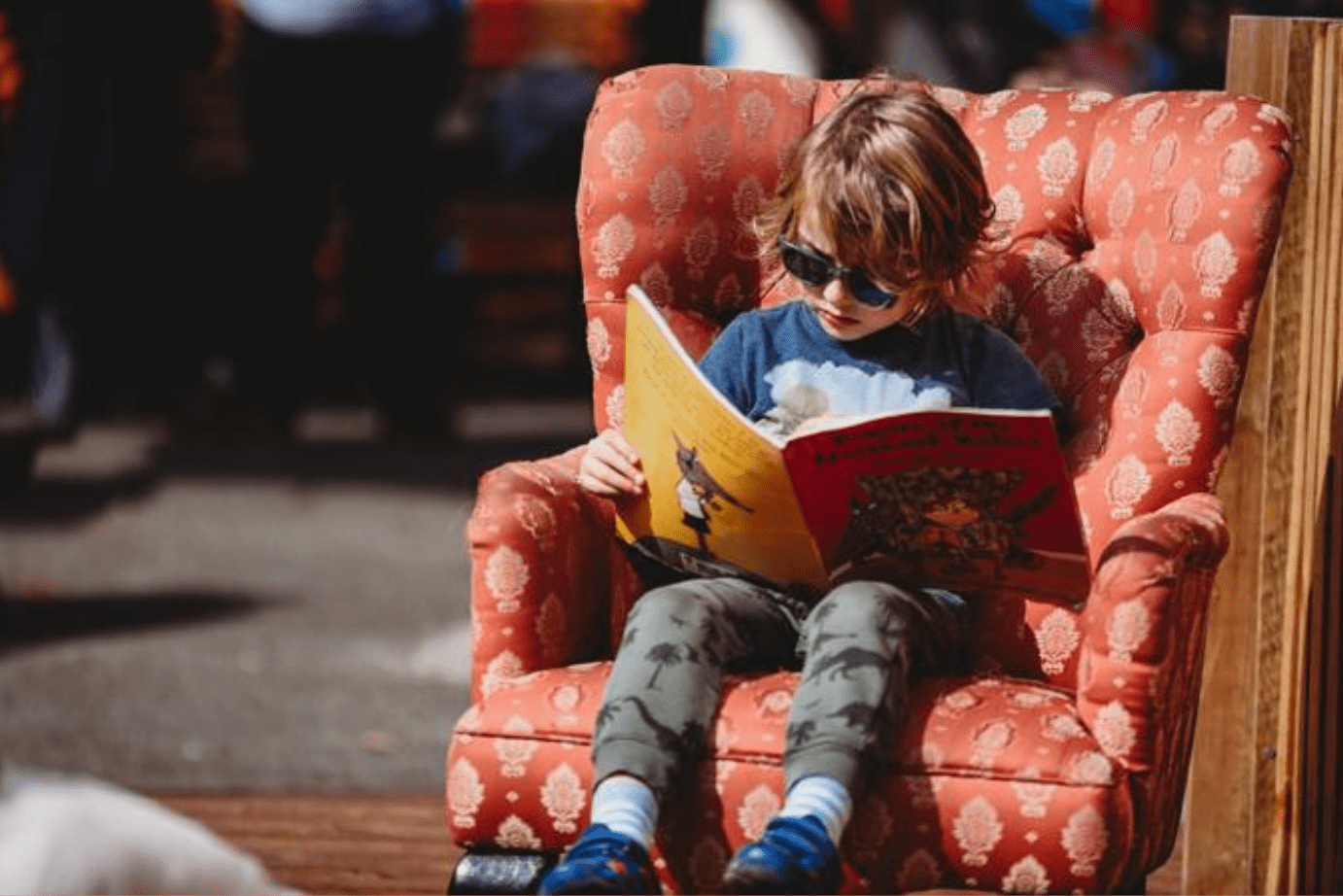
Alys: We started with us both sharing the reading. But I was conscious that because Welsh is her second language, she’s not able to be completely relaxed in it, and when this is the case for a reader it can mean that their enjoyment of the book is impeded by the focus that they put on understanding and pronouncing every word. I asked whether this was true for her and she said that she enjoyed the books more when I did the reading aloud. It meant there was more chance for me to talk about other things, because I can interrupt myself much more easily when I’m reading. So we did that for perhaps five or six sessions, but then, about two or three sessions ago, she said at the beginning, ‘I’d like to read,’ and she’s been doing the reading ever since. And I do feel that her reading is better.
It was a real breakthrough. Since then I’ve noticed – it’s just a small amount – she will break through and talk about the text, comparing what I do or what she does with what’s happening in the story. Our first read together was by Alex T. Smith: Claude: Lights! Camera! Action! (Clem a’r Sgrin Fawr). For several weeks after that we read some of the Dirty Bertie books – Tudur Budr in Welsh – these are short stories, humorous ones (with titles like Kiss!, Toilet! and Germs!), which I thought was a good place to start. One week I said, ‘Do you want to have a go at reading this different book from the Tom Gates series?’ and she said, ‘Well…no, I’m alright with Tudur Budr.’ I’d already heard from her carer that she was a bit concerned about some books that had been sent through in the post; apparently she had been a bit frightened, because she thought they looked too difficult for her. But I said, ‘I don’t think they are difficult. It’s just the way the books look, because there’s a lot of text.’ Last week, I turned to another one, a novel called Hedyn by Caryl Lewis, saying, ‘Shall we have a look at this? I’ll do the reading this week. We’ll just read the first chapter.’ And that time she said, ‘Yes, please, yes.’ And then I said, ‘Shall we read the second chapter?’ ‘Oh yes, please. Yes, please.’ She was understanding it. When we start again in September, I’ll pick up on that book again and ask her if she wants to have a go at reading that.
Last week we started the call and the carer said, ‘She’s got an attitude this evening, so be patient.’ But she was fine, straightaway, and by the end she was laughing and I could see she was far more relaxed than she had been at the beginning. It took her out of herself.
Daniel, a retired teacher, reads over Zoom with two siblings: an eight-year-old girl and a seven-year-old boy. Both enjoy reading aloud to Daniel, though he still gives them the choice of listening to him read if they prefer. Kerry is their foster carer.
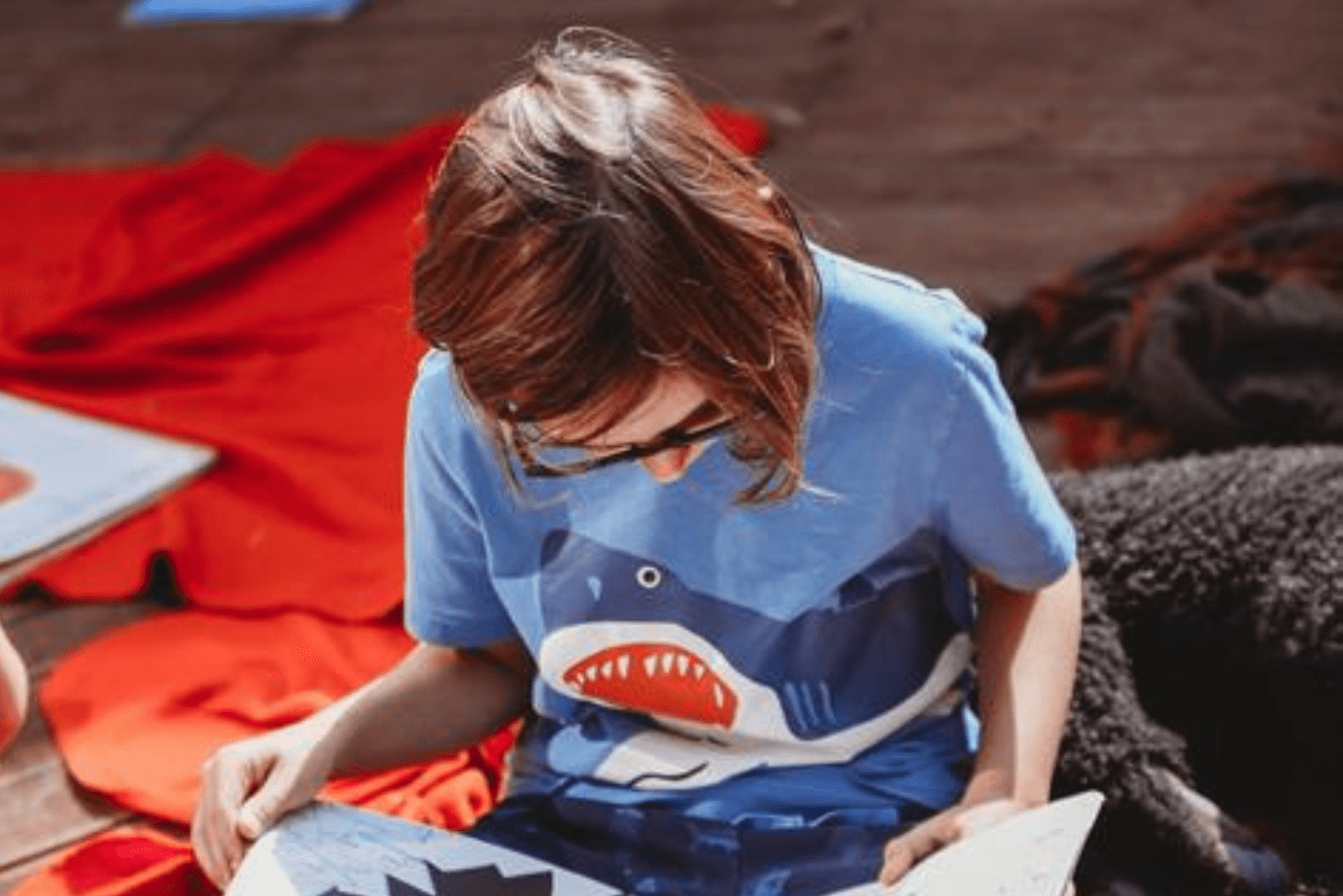
Daniel: Both of them are responding very, very positively to the idea of reading for joy. The girl particularly responds in a remarkably happy way. I mean, her happiness just beams out of her. This is her time to shine, as a reader, and also within the reading relationship that we have. Although she probably does read elsewhere, I think she has the freedom to expand in her imagination when we read aloud together. I do occasionally step in – I explained to her why italics were used, and now when she comes across italics she loves it because she has the opportunity to express herself in a much more defined way. She sometimes says, ‘I’m going to have another go at that!’ It is a great joy working with her because it starts as a pleasure and it goes on into something else. That’s what fantastic narrative can do – it can engage and allow the child to relate emotionally to the characters and to the situations. We’ve been reading the Ariki series by Nicola Davies (illustrator Nicola Kinnear). We both enjoyed the first one so much we thought we’d read the second one, so now we’re on Ariki and the Island of Wonders. We spend quite a lot of time looking at the illustrations as well because they’re quite highly detailed, and there’s a lot of nice little features that you can refer to.
Kerry: When she has to read a schoolbook in school, she’s not really fussed. But reading with Daniel has helped with her confidence. I know she’s seems outspoken and bubbly, but she is Çuite insecure inside.
Daniel: I enjoy reading and tend to dramatize my reading. I don’t think she’s had anyone reading aloud to her in the way that I do it. And for her specifically, and I think for others I’ve read with as well, they’re given a green light by my way of reading. They suddenly think, ‘Oh right, I can have a go at that!’ And then, of course, when they feel confident enough to have a go themselves, then I will react, or overreact in order to encourage them. Making them feel good about how they made me laugh. I’ll react to some moment of horror or something that’s happened in the story and then they feel encouraged to do even more. That’s the pleasure of reading a book aloud. But then all that pleasure found within books does lead us on, into a world of relationships, understanding and identification, and engagement in imagery and metaphor and philosophy.
Volunteers know that the hardest part of their work comes when the Reading Heroes placement comes to an end after six months, and the mutually rewarding weekly contact must cease. The project has been designed to ensure that the relationships which develop operate within clear boundaries at every stage. One consoling thought is always that although the volunteer placement might come to an end, the young person is left with a relationship with books that will last them a lifetime. The books will always be there. Daniel spoke about another aspect of the partnership that endures:
Daniel: In a child’s experience of the adult world, which certainly for many looked after children may be a frightening, bleak and dark one, the relationship with a Reading Heroes volunteer has a beginning, middle and end – a bit like a story. It is an opportunity for a relationship that, beginning to end, is wholly positive and wholly good. They can take that with them, and put it in that secret, special place where they put wholly good things.
Share
Related Articles
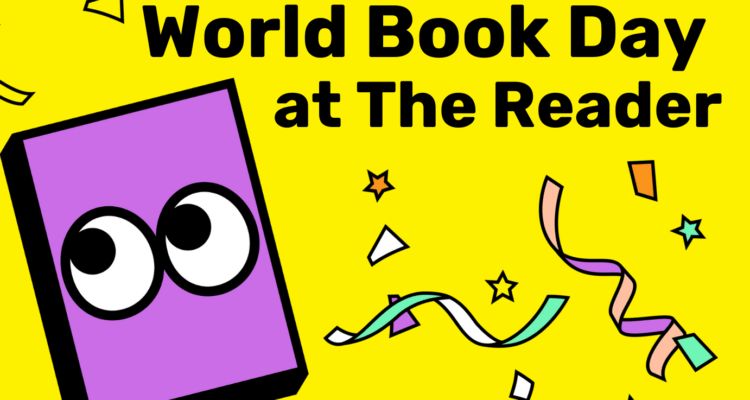
World Book Day® and The Reader celebrate the fun of reading
National reading charity World Book Day is partnering with Shared Reading charity The Reader for a fun-filled day in…
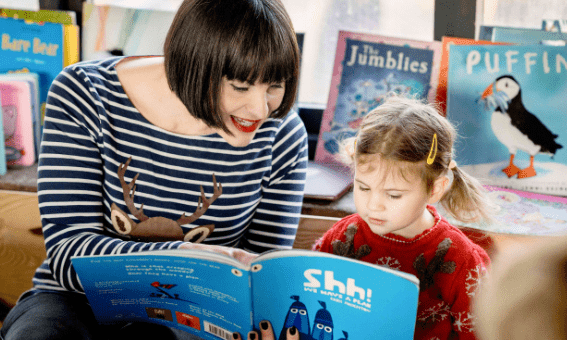
The Reader launches Christmas appeal to raise £10,000 to help care-experienced children thrive through the joy of reading
As the festive season approaches, the Liverpool-based national Shared Reading charity is launching an appeal calling for help to make…
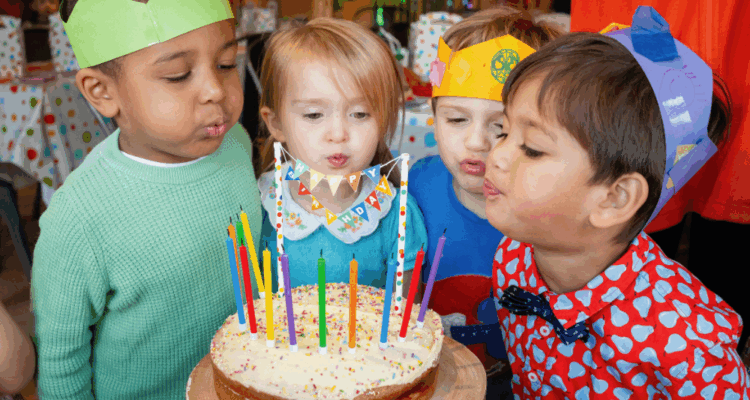
Celebrating 10 years of The Storybarn with an even bigger end of summer family festival
The UK’s biggest Shared Reading charity will be marking the end of the summer holidays and a major birthday milestone…


